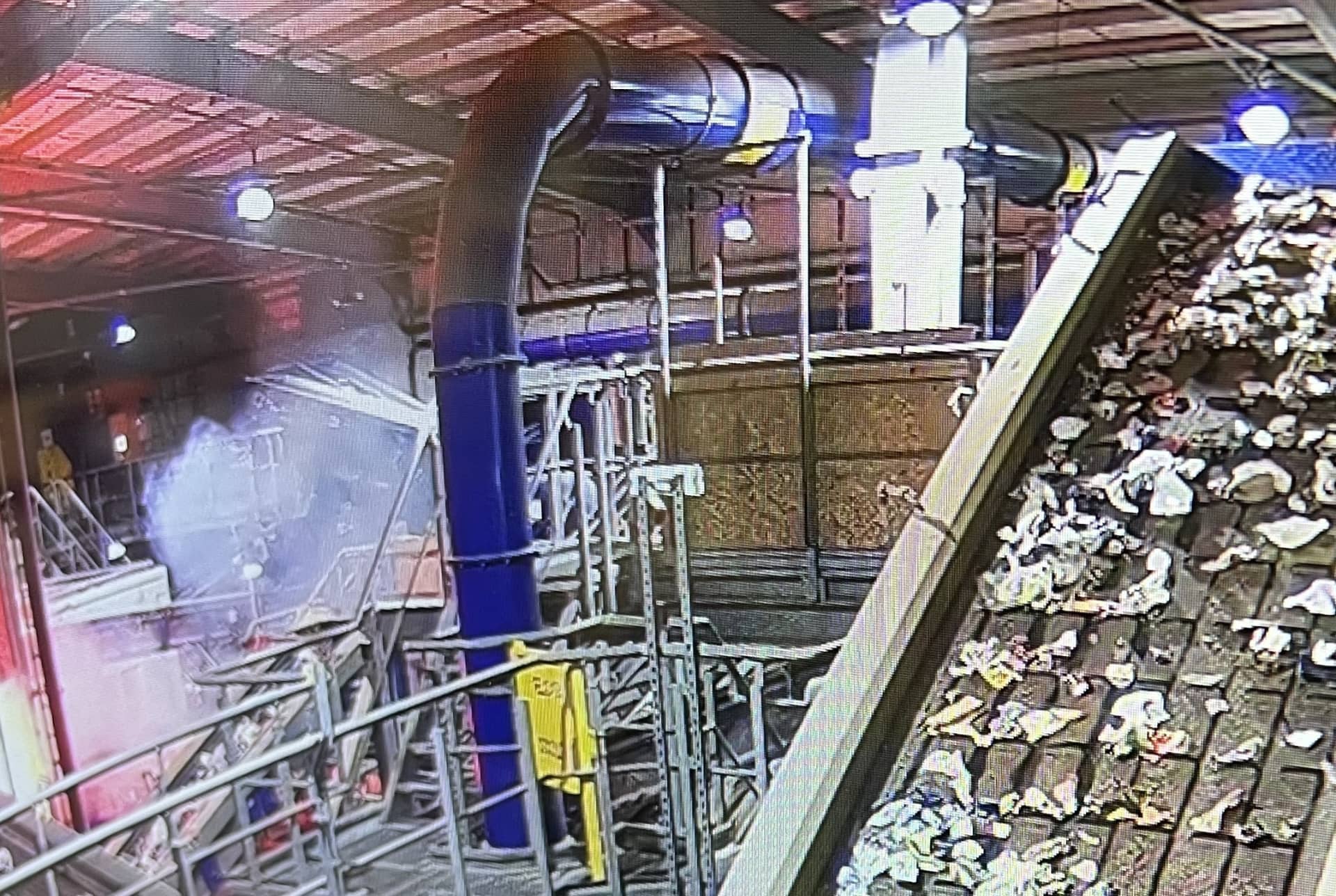A marine flare left out with household recycling caused a fire at the Isle of Wight council’s waste treatment plant on Forest Road earlier this month (13th December).
The fire was contained quickly due to the prompt action of the control room supervisor who spotted the fire on the recycling belt, raised the alarm and deployed the emergency response team.
Nobody was hurt and more serious consequences were averted.
Dix: “It could have been so much worse”
Natasha Dix, the council’s strategic manager for environment, said,
“This is why people must not place items containing explosives in household waste or recycling under any circumstances.
“The Explosives Act 1999 requires people to dispose of explosive materiel safely because of the very real threat of injury or risk to life if they are discarded irresponsibly.
“Thankfully, in this instance, neither occurred, but the plant had to be shut down while responders dealt with the emergency and made it safe to resume operations.
“It could have been so much worse, and could easily have resulted in costly repairs to the Island’s state-of-the-art facility.”
How to dispose of unwanted flares
Unwanted, damaged or end-of-life flares must be disposed of through service providers who are registered and equipped to dispose of them safely.
The Royal Yachting Association and British Marine’s joint environmental programme, The Green Blue, provides details of registered service providers.
Hampshire and Isle of Wight Constabulary no longer accept unwanted, damaged or out-of-date flares, so please do not take them there.
If you are unsure what to do, contact your original supplier who may take them back. The Coastguard may also be able to advise on local disposal options.
News shared by Isle of Wight council press office, in their own words. Ed





